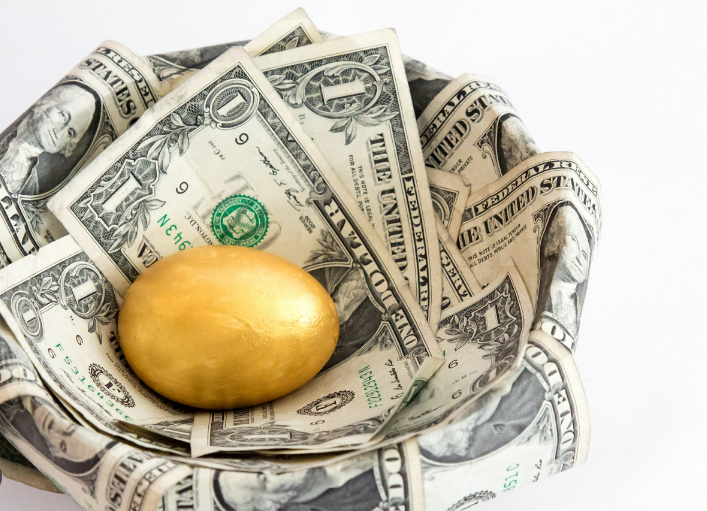How Do You Build a Nest Egg?

A nest egg is money accumulated from saving and investing, typically earmarked for retirement. You might build a nest egg through an employer-sponsored retirement plan like a 401(k) or an individual plan such as an IRA. If you plan to use the money before retirement, for example, to buy a house, it may be in a taxable account.
Generally, a nest egg is money you aim to protect at all costs. It’s your financial security for when you are no longer working, or it’s the savings for achieving a dream—whether that’s a dream house, vacation, or car.
How to build a nest egg
You can build a nest egg in many ways, but it’s essential to do so purposefully and carefully. Preserving the money you’ve accumulated is crucial to avoid losing it to poor investments. This doesn’t mean only investing in the least risky options, but it does mean carefully weighing your alternatives and balancing the risks.
Here are some key steps to follow when building your nest egg:
1. Choose the right account
Tailor your account type to match how you intend to use the money:
- Retirement: Consider an employer-sponsored plan like a traditional 401(k) or Roth 401(k). Your employer may match your contributions, which is essentially free money, and you’ll receive valuable tax advantages for saving in these accounts.
- Maxed Out Employer Plan: If you’ve maxed out your employer-sponsored plan, consider an IRA, either traditional or Roth, which also offers significant tax benefits.
- Pre-Retirement Needs: For goals that require funds before retirement, such as a special purchase, use a taxable account. While it doesn’t provide tax advantages, it offers complete flexibility with the money.
- College Savings: If saving for college, a 529 college savings plan can provide tax advantages and other benefits.
Throughout your career, you may have access to various top retirement plans. Choose the account type that best aligns with your nest egg’s purpose.
2. Choose the right investments for your needs
Tailor your investment plan to align with your nest egg’s intended use and the timeline for needing the money:
- Decades Away: If you have decades before you need the funds, you can afford to be more aggressive and invest in higher-return assets such as stocks. Although stocks may fluctuate more in the short term, they tend to outperform other major asset classes over time.
- More Than Five Years: If you have over five years before needing the money, it could still be wise to invest partially in stocks, balancing them with assets that carry less risk but still offer potential upside.
- Few Years Away: If you need your nest egg within a few years, prioritize safer assets like bonds or high-yield savings accounts to ensure your money is available when you need it.
No matter how you plan to use your funds, ensure your investment strategy aligns with your goals. Long-term goals typically benefit from aggressive investing, while short-term goals may necessitate more conservative investments.
3. Add to the account regularly
Once you have money in your account, it’s important to keep contributing regularly. Consistent contributions help your account grow over time. A 401(k) makes saving easy by automatically withdrawing money from your paycheck before you even see it, helping you accumulate more funds.
Protecting your nest egg is crucial to ensure it’s there when you need it. If you’re saving for retirement, it’s essential to stick to your plan to enjoy a comfortable retirement. Resist the temptation to spend your nest egg on anything other than your intended goal.
Should you invest your nest egg?

Your nest egg’s biggest enemy is inflation. Over time, inflation reduces the purchasing power of your money. If your investments don’t outpace inflation, you’re effectively losing value in the long term, even if your account balance increases nominally.
Low-return investments like bonds, savings accounts, and CDs struggle to keep up with inflation, especially during periods of high inflation, such as in 2022. This is why owning stocks is essential for those looking to grow their nest egg, particularly if they have a long time horizon before needing the money.
A well-diversified stock portfolio offers the best chance to beat inflation over time. Stock prices are driven by the success of the underlying businesses, at least in the long term. However, stocks can be volatile in the short term. Investors should plan to hold their investments for an extended period, allowing them to weather market fluctuations.
If you want to maximize your nest egg and have decades to save, here’s how to prepare for retirement.
In Conclusion
Since your nest egg is money saved for a specific purpose, it’s crucial to protect it carefully. For some, this might involve hiring a financial advisor who prioritizes your best interests to manage the funds. For others, it could mean personally overseeing and tracking investments to monitor your progress each month. Regardless of your approach, the key is to ensure your nest egg is secure and available when you need it.
